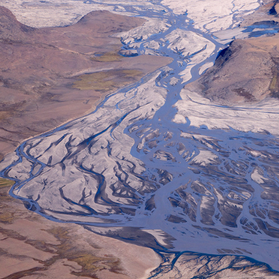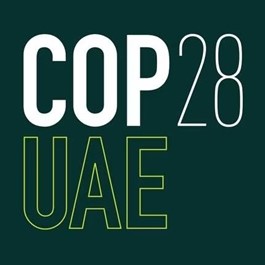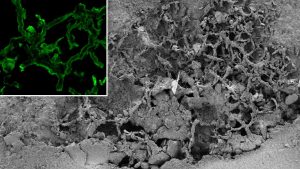Friday 13th June – 15:30 to 16:30 - room SDB4.245
"Estimating hydrological variations from geodetic and geophysical perspectives"
by Dr. Anita THEA SARASWATI (Geophysicist, Royal Observatory of Belgium)
2024-2025 IGEOS SEMINARS:
June 2025: "Estimating lateral nitrogen transfers over the last century through the global river network using a land surface model" by Dr. Minna MA (BGEOSYS, ULB)
May 2025: "Marine CSEM at the Tectonic-Climate Interface: Subsurface imaging for geohazard mitigation and ocean sustainability" by Dr. Eric ATTIAS (University of Texas at Austin )
May 2025: "Micro-to-nanoscale insights into mineral-life interactions and their role in shaping the ancient and modern environment" by Debby SCHMIDT (University of Copenhagen)
April 2025: "ULB in Antarctica: breaking the ice with ULTIMO & Beyond EPICA" by Lisa ARDOIN and Gabriel Angel PINTO MORALES (Glaciology, ULB)
March 2025: "Micro-to-nanoscale insights into mineral-life interactions and their role in shaping the ancient and modern environment" by Dr. Neha MEHTA (BGEOSYS, ULB)
February 2025: "The rhythm in the rocks - Time, Climate and Anoxia" by Prof. Anne-Christine da SILVA (ULiège)
January 2025: "Thermomechanical behaviour of the Laurentide Ice Sheet: from analytical advances to a modelling approach" by Dr. Daniel MORENO (Glaciology Lab, ULB)
December 2024: "Probabilistic volcanic hazard assessment" by Dr. Pablo TIERZ (CSIC Geosciences, Spain)
November 2024: "Geodynamic history of Precambrian Africa" by Dr. Camille FRANCOIS (Royal Museum for Central Africa)
October 2024: "Deformational and thermochronological evolution of the Cubatäo Shear Zone: a crustal-scale shear zone of the Gondwana supercontinent" by Dr. Dina CABRITA (G-Time, ULB)
October 2024: "Tracing Nutrient Cycling from Glaciers to Polar Oceans" by Dr. Rhiannon JONES (British Antarctic Survey)




